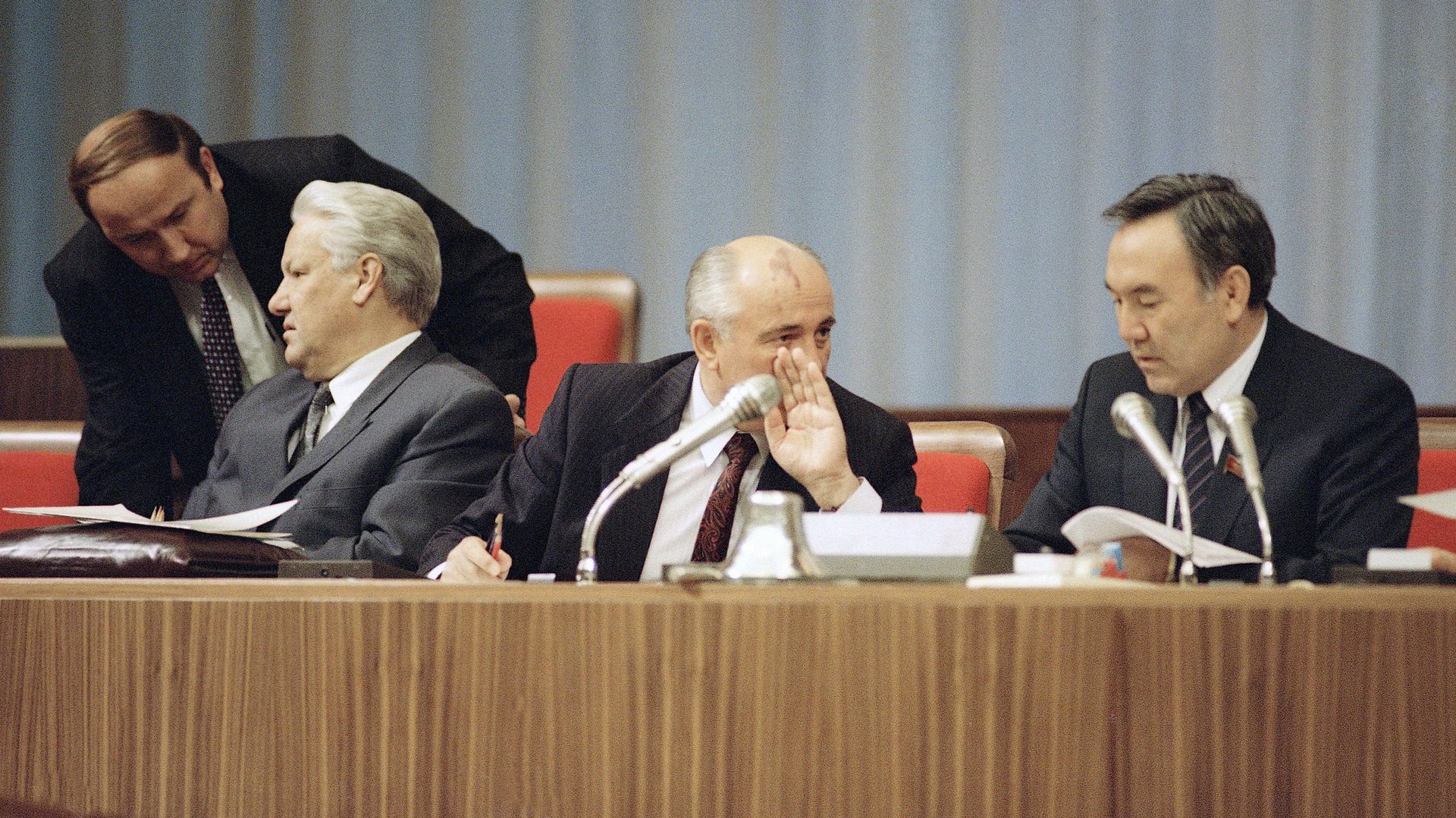Iran is reportedly considering Kazakhstan as its trusted destination for enriched uranium
Iran is reportedly in discussions to export much of its highly enriched uranium to Kazakhstan, a Central Asian country that has often served as a trusted mediator in tough geopolitical negotiations.


Iran is reportedly in discussions to export much of its highly enriched uranium to Kazakhstan, a Central Asian country that has often served as a trusted mediator in tough geopolitical negotiations.
In order to comply with the nuclear technology deal reached in July with outside powers, Iran has to ship out or otherwise get rid of all uranium enriched at more than 5% if it’s not used for a civilian research reactor in Tehran. The Wall Street Journal reported Dec. 8 that Iran is looking at Kazakhstan as a destination for the uranium it cannot keep, and that the US is helping to broker the arrangement.
Much of the talk thus far has been for Russia to serve as the destination for the highly enriched uranium. But given Russia’s current frosty relations with the West, the selection of Kazakhstan would be shrewd.
Kazakhstan gave up its own nuclear arsenal after the Soviet Union broke up, part of the surrender carried out in a cloak-and-dagger operation described in David Hoffman’s Pulitzer Prize-winning The Dead Hand.
In addition, president Nursultan Nazarbayev held two rounds of the so-called P5+1 nuclear talks between Iran and world powers in 2013.
In the late 1980s, Nazarbayev—leader of Kazakhstan even then—played a similar go-between role during the closing years of the Soviet Union. He mediated between Soviet leader Mikhail Gorbachev and his bitter rival Boris Yeltsin, and was trusted by both, and by the United States.